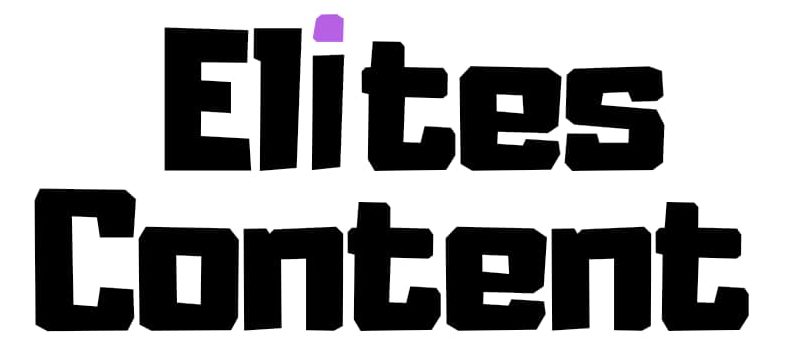The nature of marketing is never static. It changes as the day goes by.
Just like the saying, there is no static equilibrium in life; take it or not, change must occur and you can attribute that to marketing. As a school of thought, marketing has been in existence since the beginning of the world, and it has gained the attention of different scholars.
Many at times, people get a little bit confused about the best way to define the term as a result of its nature. It is as complex as a gigantic tree with branches. The truth is that marketing is like a moving plane; its destination cannot be predicted by a guesswork.
To understand the term marketing, it requires one to understand its nature.
This article provides a simple guide as it explains the nature of marketing in a clear and simple language. It encapsulates the views of different scholars about the nature of marketing.
At the end of your reading, You will be able to:
- Understand the true nature of marketing: (Eclectic, Controversial & Universality).
- Understand why marketing has no permanent definition: (The story of Elephant & Six blind men).
A few years back, after reading a book titled “Contemporary Marketing: Tropical and Tropicalized.” by Gazie Okpara, it gave me an insight into the the nature of marketing.
The Story of Elephant & Six Blind Men

Image credit: Pixabay
The story of the Elephant and the six blind men is a parable that depicts how people conclude and make generalizations based on their own personal observation.
After this story, you will know why the definition of marketing is dynamic and controversial.
Here we go!
Once upon a time, six blind men were asked to explain or define an Elephant.
The 1st blind man got closer to the elephant and could only touch the hardy or sturdy side and concluded that the elephant looks more like a Wall and its as strong as a block.The 2nd blind man could only touch the elephant’s tusk and concluded that the elephant can be used as a Weapon such as spear and knife for war.
The observation continued as the 3rd blind man touched the squirming trunk and concluded that the Elephant is like a Snake. The 4th touched the elephant’s knee and called the Elephant a Tree-like object. The 5th blind man only touched the ear and concluded that an Elephant is a perfect example of a Fan.
Finally, the last 6th blind man could only touch the Elephant’s tail and concluded that the elephant is nothing but a Soft rope.
The Nature of Marketing And The Story of Six Blind Men & Elephant
The story shows how the six blind men described and defined the elephant based on their different experiences.Similarly, several persons who touched marketing in different aspect defined it the way they felt it.
Those who touched it on its management, social, scientific, strategic and institutional angle, defined it in their own way.
That’s why marketing has different descriptions.
Some saw it as a sales-thing, some saw it as a social process while some saw it as a management process etc. In fact, marketing has a lot of factors that contribute to its dynamic and complex nature.
Nature of marketing
An understanding of the nature of marketing gives insight into the meaning and definition of marketing.
Here is the nature of marketing explained in three aspects such as Eclectic, Controversial and Universality.
The Eclectic Nature
The eclectic nature of marketing refers to the fact that marketing is a combination of different fields of study.
A closer look at marketing reveals that it does not exist on its own. Its a mixture of Economics, Sociology, Psychology, Mathematics & Statistics, Technology & Computer science, etc.
For instance, terms like wants, demands, Market, price etc are typical concepts of Economics. Terms like culture, peer group, focus group are typical concepts of Sociology.
Also, terms like consumer behavior, attitude, etc are typical concepts of Psychology. Terms like population, sample size and use of mathematical formula are typical concepts in mathematics and statistics. More also, terms like Digital marketing, Electronic consumers or E- Consumers, Social media, innovation, designs, etc are typical concepts of Technology & Computer science.
The Controversial Nature
The controversial nature of marketing refers to the fact that marketing is a complex word with different definitions.
The controversial nature of marketing also explains that marketing is dynamic in nature.
Regis McKenna, in a Harvard Business Review publication, expressed the dynamic nature of marketing by pointing out that in the 1990s, firms had to shift from being product-driven to market-driven.
See how Regis puts it:
As technology developed and competition increased, some companies shifted their approach and became customer driven
Even the American Marketing Association (AMA) provided series of definition for marketing holding to the fact that marketing in itself is dynamic.
Professor Robert F. Lusch, a former editor & chairperson of AMA expressed the dynamic nature of marketing in the Journal of Public Policy and Marketing. He stated that AMA’s earliest official definition of marketing in 1937 was a reflection of the common view of marketing in terms of production and distribution.
See the definition here.
Marketing is a business activity involved in the flow of goods and services from production to consumption AMA, 1937
A shift in thought and focus after a half-century resulted in a new definition of marketing. It moved from being just distribution or flow of goods and services to something else:
Marketing is the process of planning and executing the conception, pricing, promotion, and distribution of ideas, goods, and services to create exchanges that satisfy individual and organizational objectives. AMA, 1985.
Lusch added that a shift in the view of marketing as “value built by constant interaction with customers” resulted in a new definition of marketing in 2004. He continued to emphasize the changing nature of marketing. His argument was that marketing has left the stage of being within an organization alone but to the society at large.
See how he puts it:
Marketing is more than an organizational process; it is a societal process and institution, and the official AMA definition should reflect this broadened role.
His assertions reflected in the update of the AMA’s definition of marketing which was approved in 2013.
However, it will not be a thing of a surprise to hear about another announcement for a change in AMA’s definition of marketing because truly, marketing is changing alongside the world.
Another expression that reflects the dynamic and controversial nature of marketing is that of Lee Odden @ Top Rank Marketing.
Here is it:
Marketing evolves with consumer preferences, technologies and, society. A specific definition of marketing is no more static than marketing itself.
This simply affirms that the definition of marketing today will or may not completely match what marketing will be in few years to come.
That’s because marketing moves like a train, and it never stops moving.
The Universality Nature
The universality nature of marketing implies that marketing concepts and principles are generally and widely applicable to all business and organizational activity.
The concept of customer satisfaction and marketing mix has been found to have cut across all organizational principles.Whether profit or nonprofit organization, the ideology of providing products that meet and exceed customers’ (clients’ or members’) expectations has become an overarching ideology.
Jeff Bezos, the chief executive officer of Amazon expressed his thought about the key concept in marketing as a great idea.
Focusing on the customer makes a company more resilient. Jeff Bezos.
Also, Regis Mckenna pinpointed the pervasiveness of marketing in his article titled “Marketing is everything”. Regis stated that:
Marketing today is not a function; it is a way of doing business. Marketing is not a new ad campaign or this month’s promotion. Marketing has to be all-pervasive, part of everyone’s job description, from the receptionists to the board of directors.
The assertions show that marketing is a universal school of thought in the corporate world and it an overarching ideology of a business organization.
Is it not clear that the nature of marketing is very broad and cannot be defined myopically?
Final Note
To better define the marketing as concept and a school of thought, it is easier when you look at its nature. The story of the elephant and the six blind men were used to depict how different scholars viewed and defined marketing. That’s why different people describe marketing differently.
Every organization needs marketing. Obviously, it’s an evolving stuff, the approach and nature keep changing. In fact, only those that are following the trend will catch marketing in its constant flux.
What is your own thought about marketing? Can you compare marketing today and yesterday?
I’ll be super happy to hear from you.

Jackson is an obsessed content marketing specialist. A brand storyteller, not a teller of stories. He is passionate about helping online businesses grow with compelling digital marketing strategies. Follow him on Twitter, LinkedIn, and Instagram.






Ecieomons are in dire straits, but I can count on this!
Thanks for finding it worthy to be counted.
Wow? This blog contains remarkable and in fact fine data in favor of readers. I recommend it for any body
Hi Tory. Thanks for your recommendations
I read your post very helpful to me because i am a Engineer.
Haha Harland, you an Engineer? wondering what brought you around content marketing, lol.. Its cool keep it up and thanks for appreciating my work.